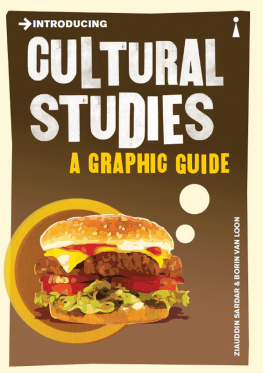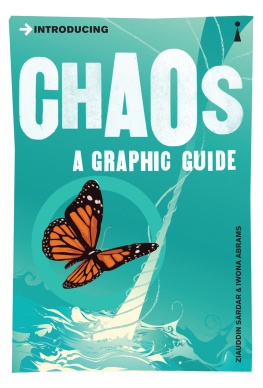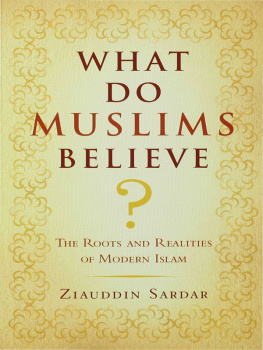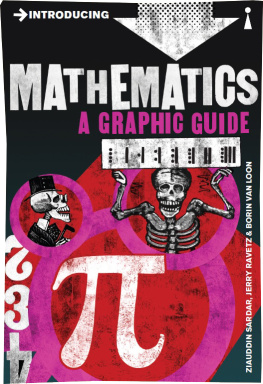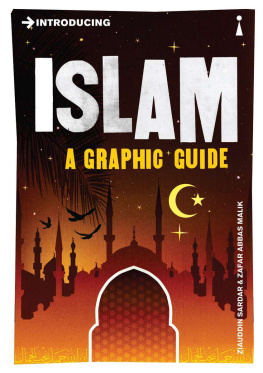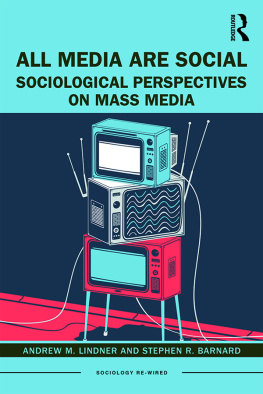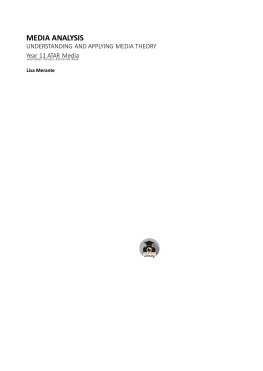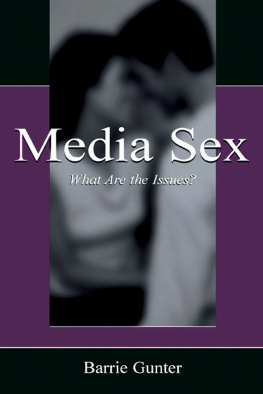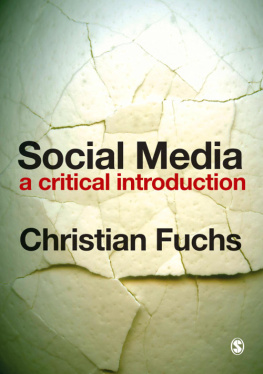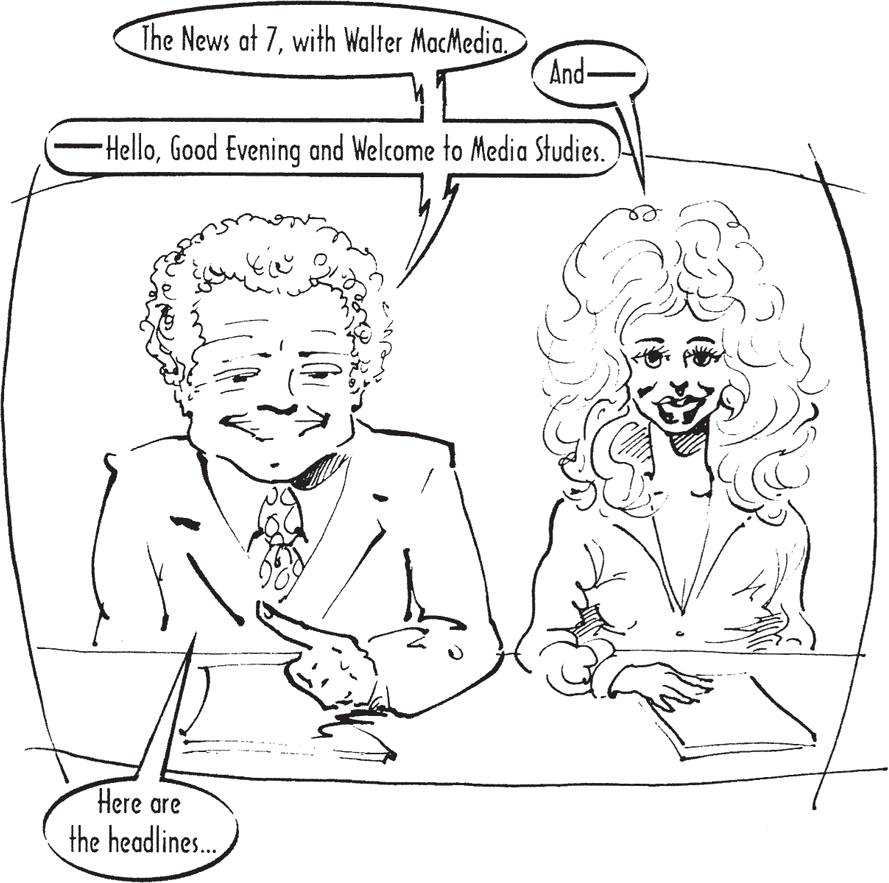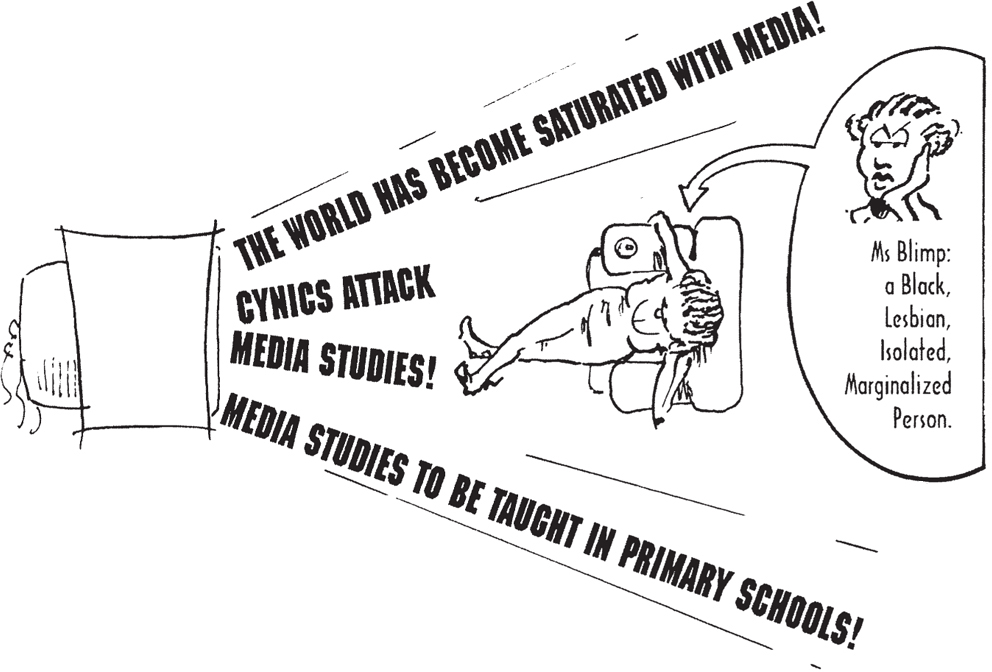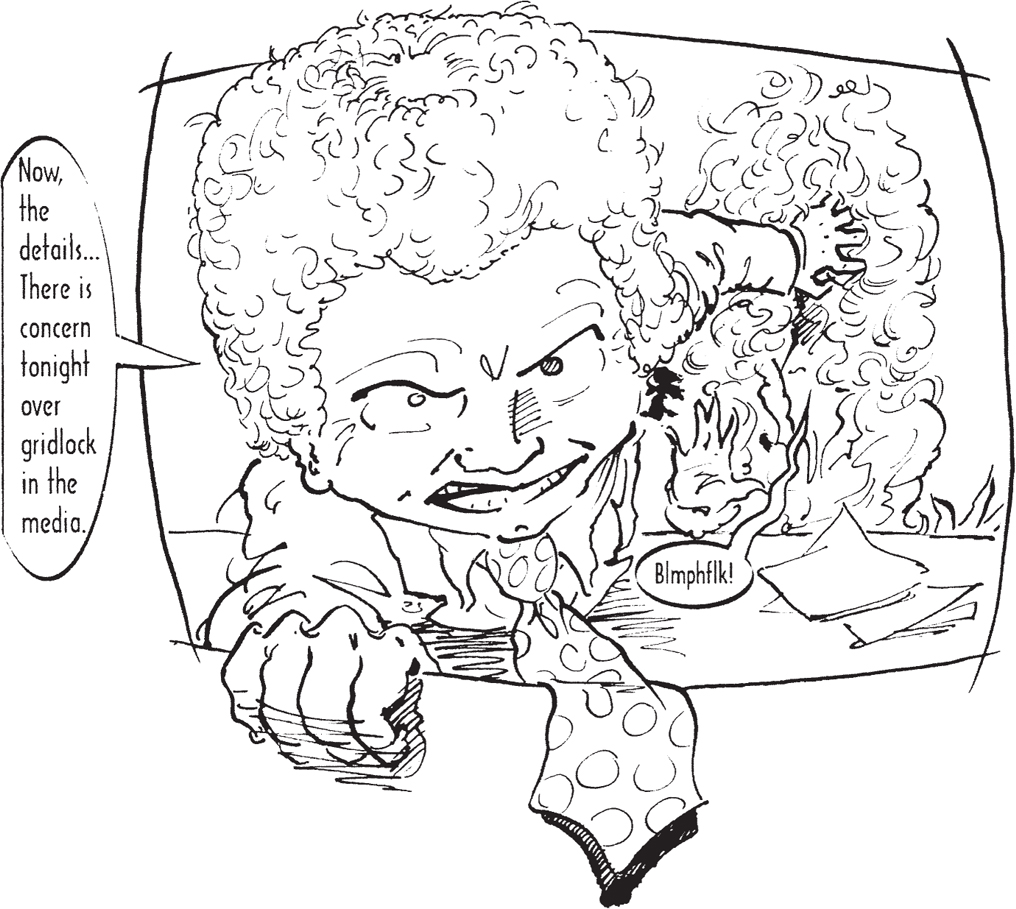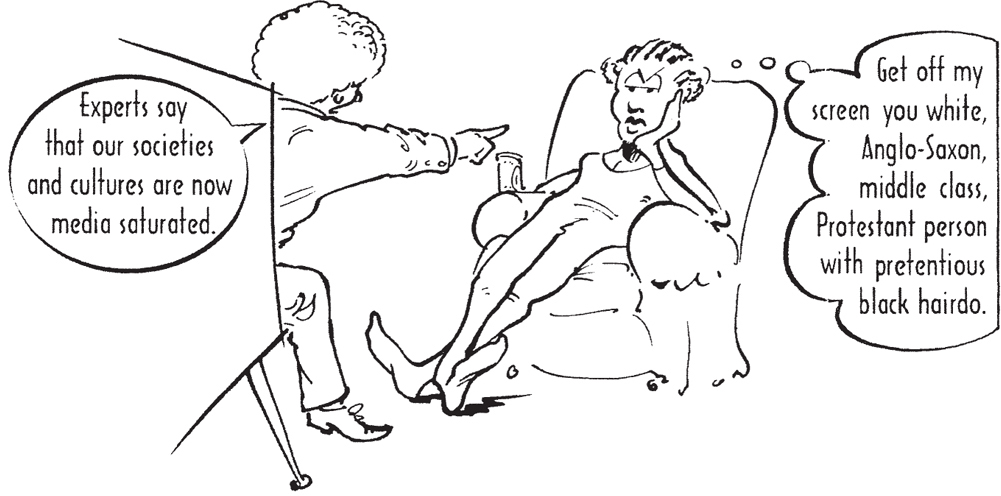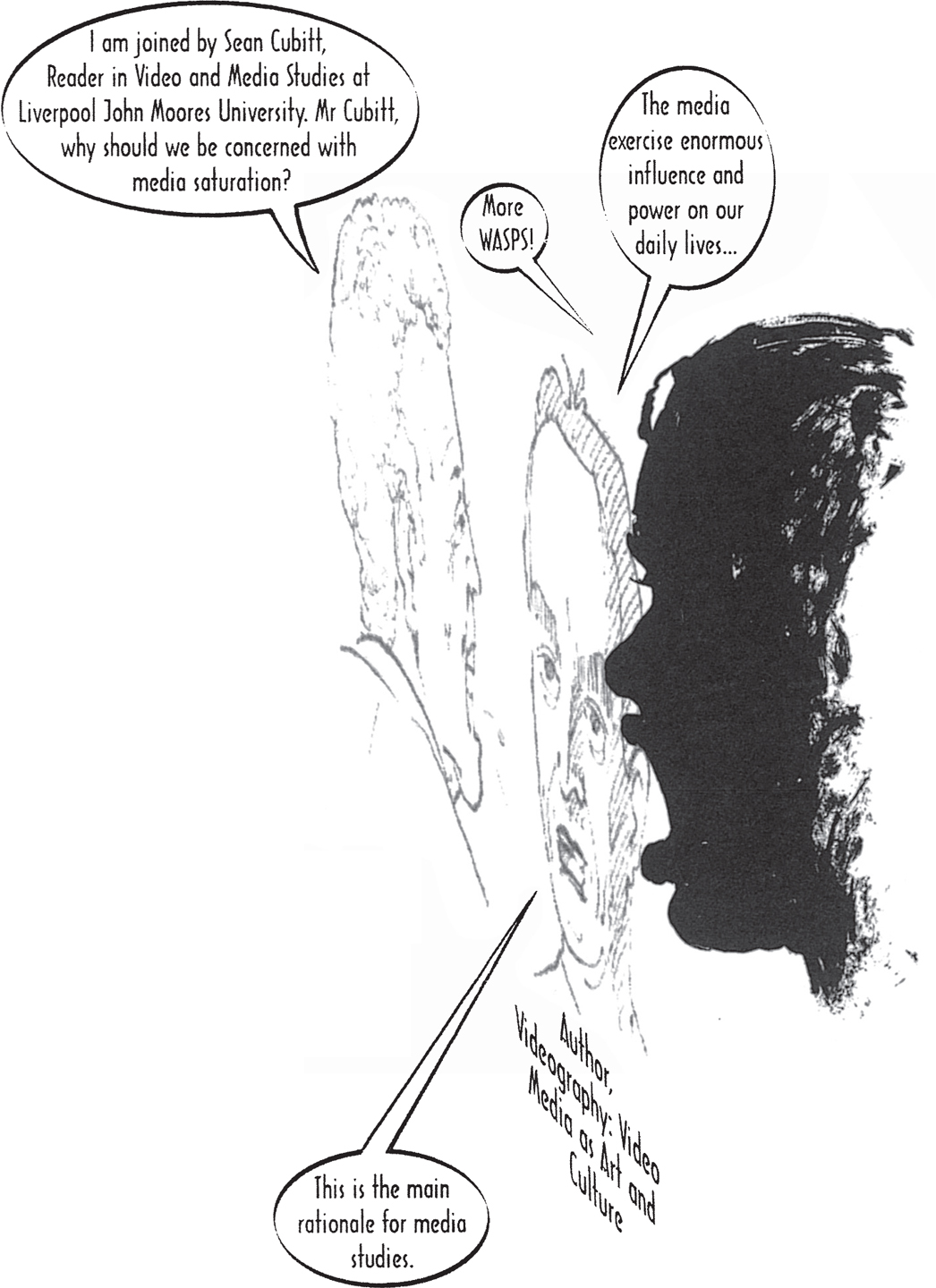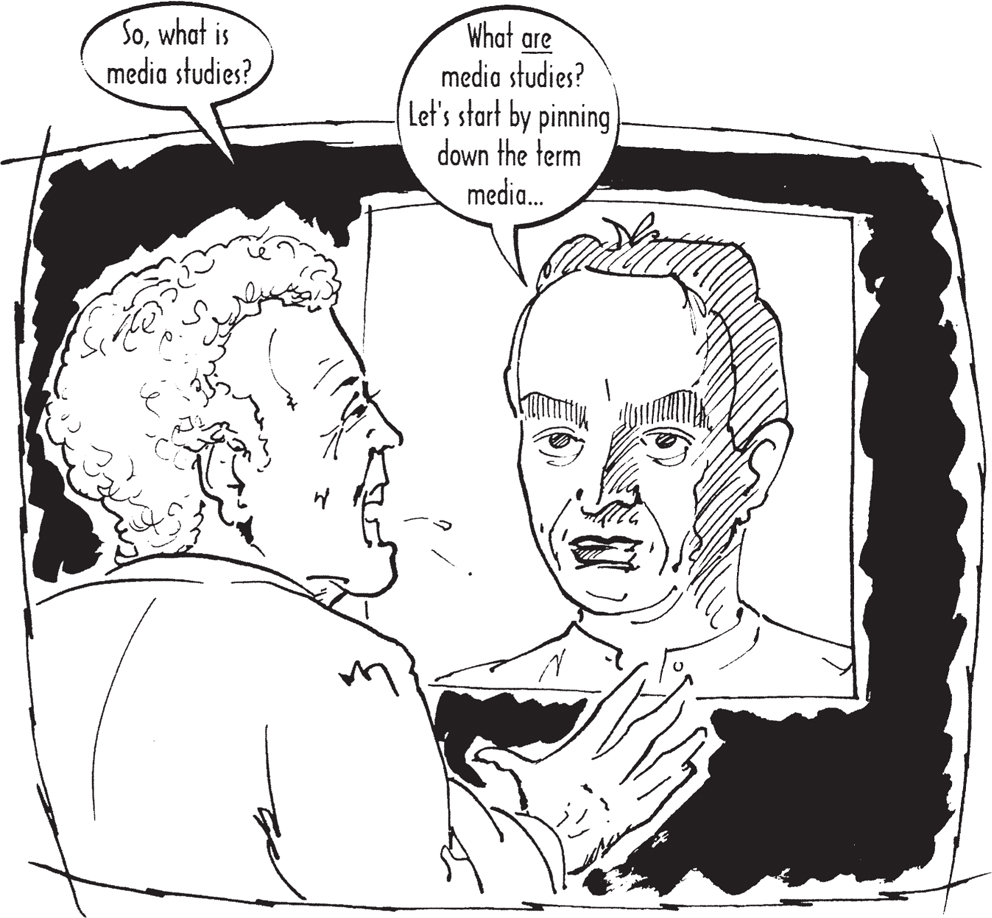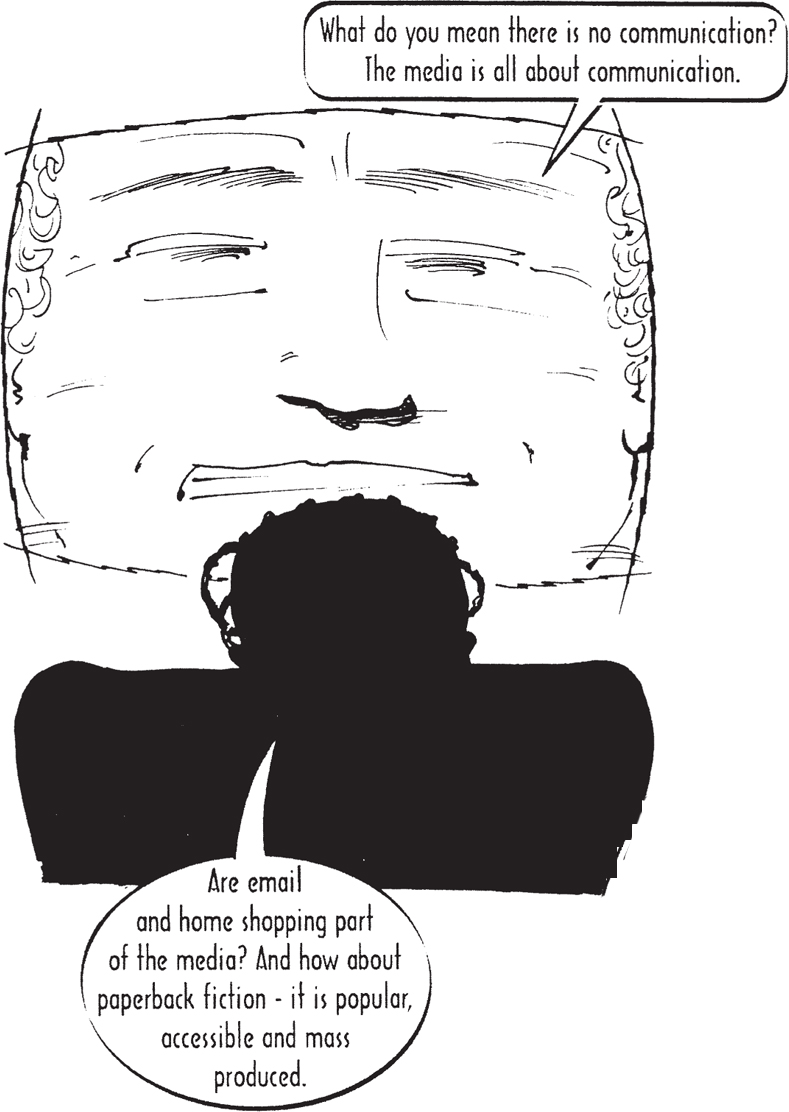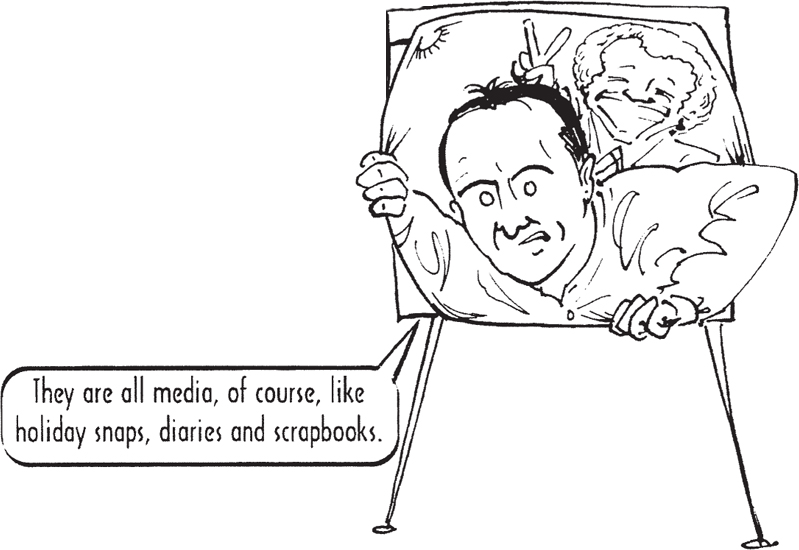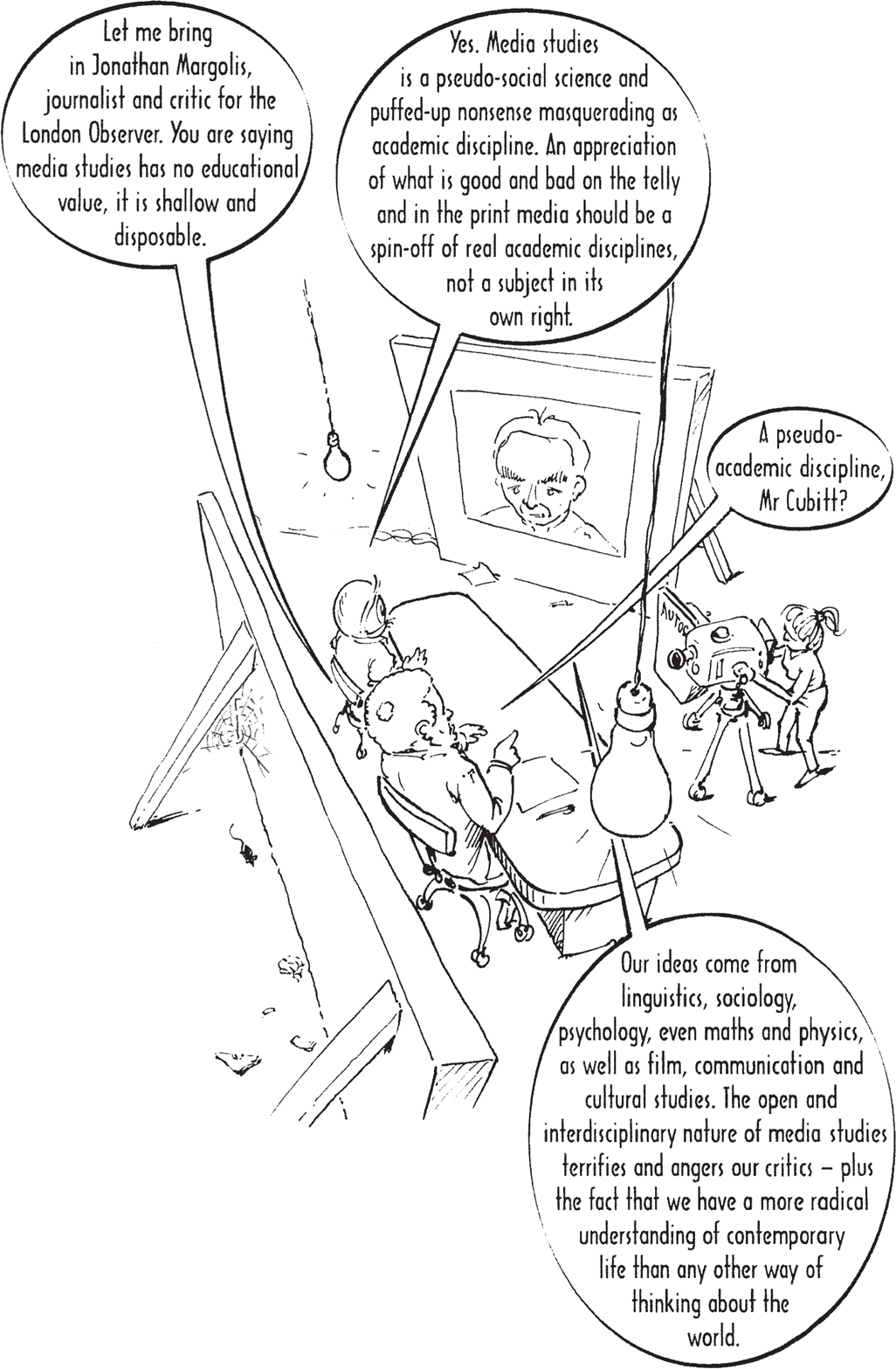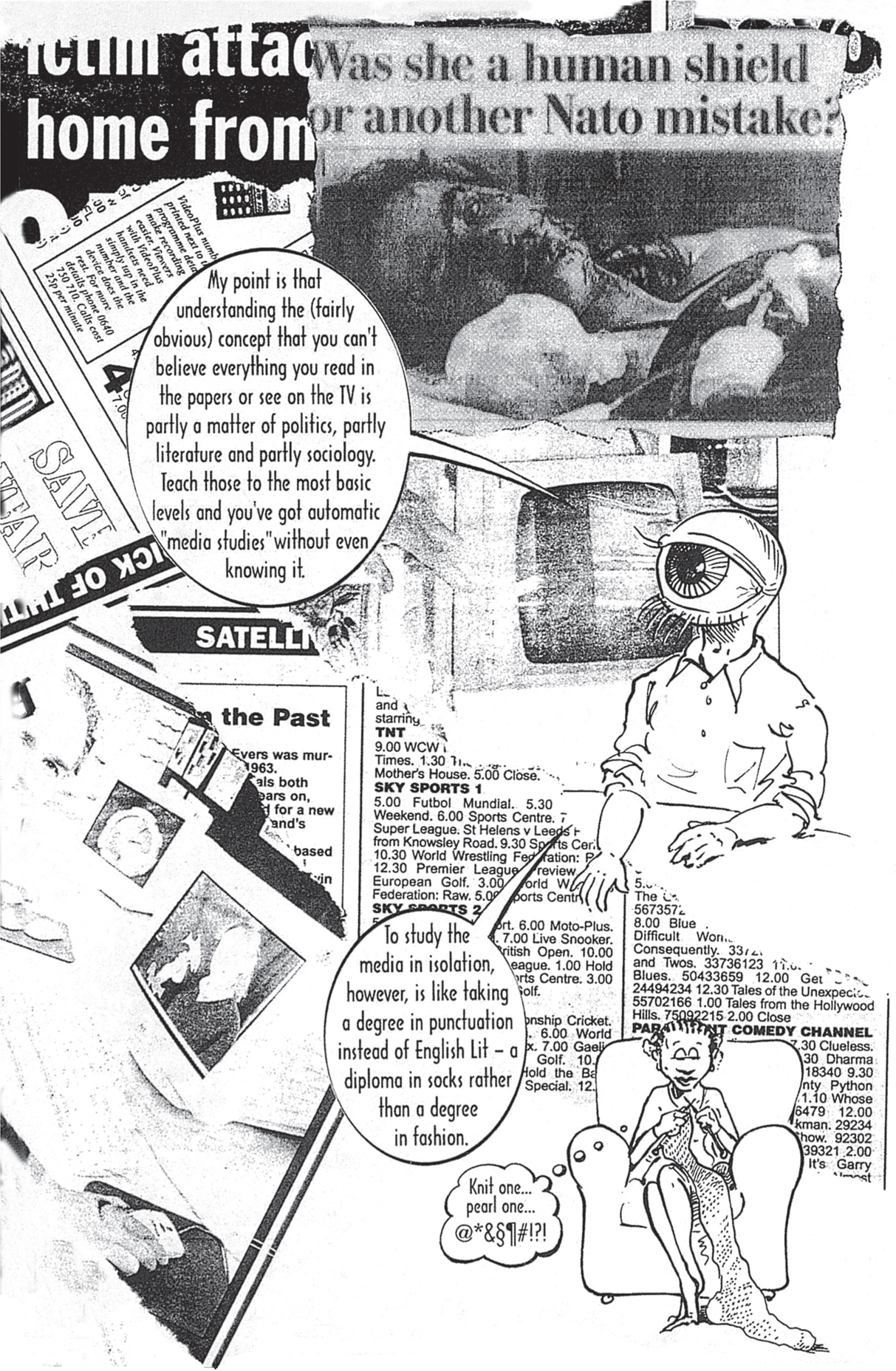Contents
Published by Icon Books Ltd, Omnibus Business Centre, 3941 North Road, London N7 9DP
Email:
www.introducingbooks.com
ISBN: 978-184831-184-8
Text copyright 2012 Icon Books Ltd
Illustrations copyright 2012 Icon Books Ltd
The author and illustrator has asserted their moral rights
Originating editor: Richard Appignanesi
No part of this book may be reproduced in any form, or by any means, without prior permission in writing from the publisher.
Why Should We Study the Media?
The News at 7, with Walter MacMedia.
And
Hello, Good Evening and Welcome to Media Studies.
Here are the headlines
Ms Blimp: a Black, Lesbian, Isolated, Marginalized Person.
Now, the details There is concern tonight over gridlock in the media.
Television channels terrestrial, satellite and digital and countless radio stations are clogging up the airwaves. Newspapers, magazines, books, comics, films, videos and animation are competing for our precious time. Advertising is almost impossible to escape. Surfing the Web is now a daily chore for most of us living in the industrialized world.
Experts say that our societies and cultures are now media saturated.
Get off my screen you white, Anglo-Saxon, middle class, Protestant person with pretentious black hairdo.
I am joined by Sean Cubitt, Reader in Video and Media Studies at Liverpool John Moores University. Mr Cubitt, why should we be concerned with media saturation?
More WASPS!
The media exercise enormous influence and power on our daily lives
This is the main rationale for media studies.
Desktop publishing and the Net have increased access to production and distribution for everyone. The media now offer more diversified choice. The genres available in each medium have also multiplied. Satellite, digital TV and Hollywood blockbusters are so expensive only a handful of corporations can be financially successful. This creates a tendency towards central control over the media.
But production is only half the story. When we watch TV or surf the Web, we are creating our own meanings and emotions. We need to understand our own work as creative and become critical users of other peoples media.
So, what is media studies?
What are media studies? Lets start by pinning down the term media
The media mediate. You might think news reporting is immediate, but it isnt. Its mediated. Like all human communication, it has to be put into a material form words, gestures, songs, pictures, writing. The point of mediating things is to communicate across space and time with as many people as possible. So the first thing to consider is that the media can reach vast numbers of people. Second, the messages nowadays are mediated by highly advanced technology.
Third, while there is the choice of making our own music or drawing our own cartoons, most of us opt to be consumers of the professional productions of relatively few corporations. These mega-companies are pretty much closed and centralized, but the reception is public and dispersed.
Fourth, there is virtually no communication between the source and the receiver.
What do you mean there is no communication? The media is all about communication.
Are email and home shopping part of the media? And how about paperback fiction it is popular, accessible and mass produced.
They are all media, of course, like holiday snaps, diaries and scrapbooks.
Pop fiction falls between the private and personal world of the home and the outside world of the publishers, studios, record labels and broadcasters, massive corporations which threaten to turn the most fundamental quality of human beings our unending love of communication into big business and, at its worst, propaganda.
So why should we study the media?
Is this your interview or mine?
Because studying the media is the best way to understand ourselves.
On average, we spend over 15 years of our waking lives just watching television. Films, videos and the time spent reading newspapers and magazines, listening to music and surfing the Net, means that we spend one-third of our lives immersed in the media. Our abilities to speak, think, form relationships with others, even our dreams and our own sense of identity are now shaped by the media. So, studying the media is studying ourselves as social creatures.
Let me bring in Jonathan Margolis, journalist and critic for the London Observer. You are saying media studies has no educational value, it is shallow and disposable.
Yes. Media studies is a pseudo-social science and puffed-up nonsense masquerading as academic discipline. An appreciation of what is good and bad on the telly and in the print media should be a spin-off of real academic disciplines, not a subject in its own right.
A pseudo-academic discipline, Mr Cubitt?
Our ideas come from linguistics, sociology, psychology, even maths and physics, as well as film, communication and cultural studies. The open and interdisciplinary nature of media studies terrifies and angers our critics plus the fact that we have a more radical understanding of contemporary life than any other way of thinking about the world.
My point is that understanding the (fairly obvious) concept that you cant believe everything you read in the papers or see on the TV is partly a matter of politics, partly literature and partly sociology. Teach those to the most basic levels and youve got automatic media studies without even knowing it.


